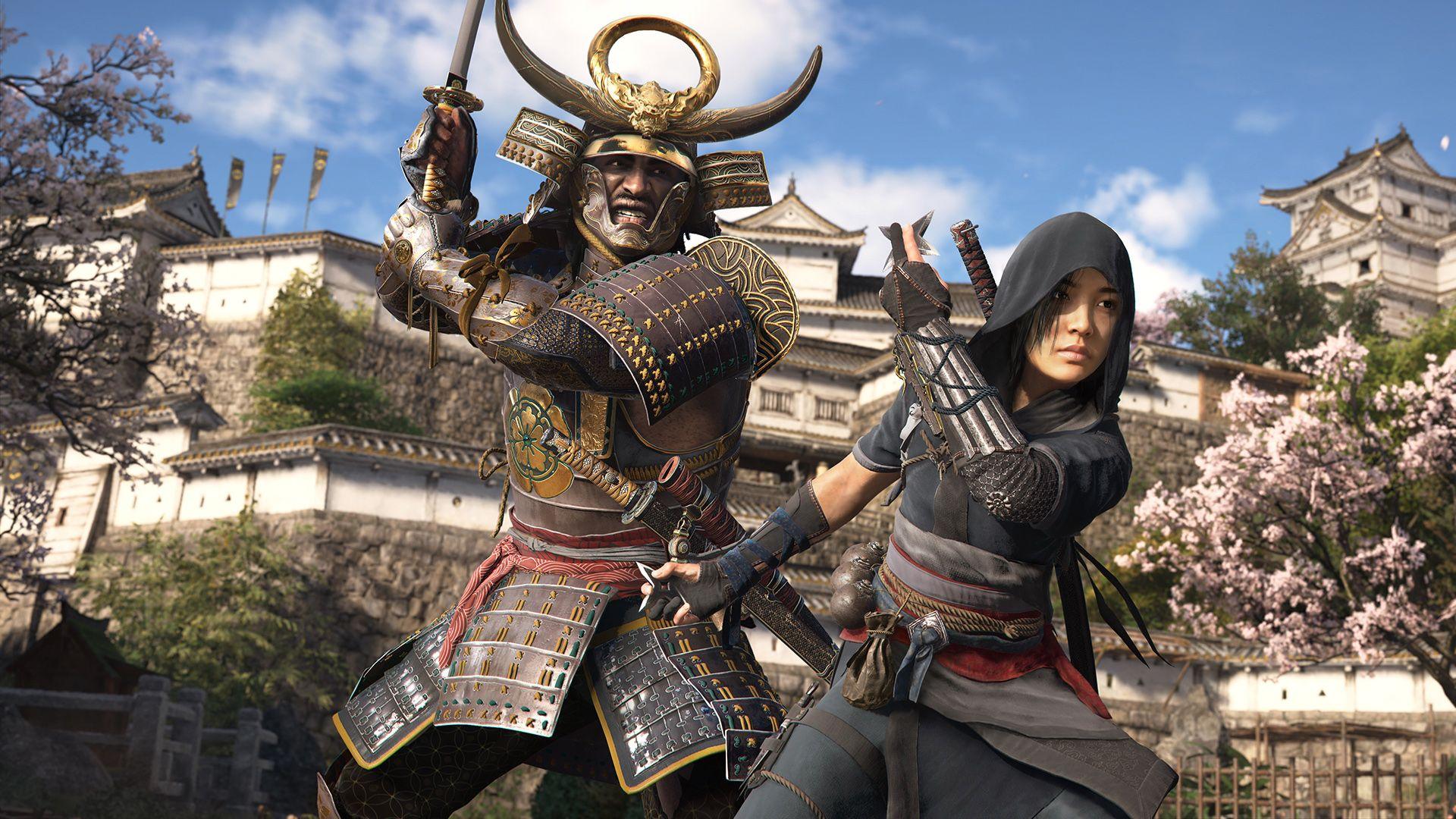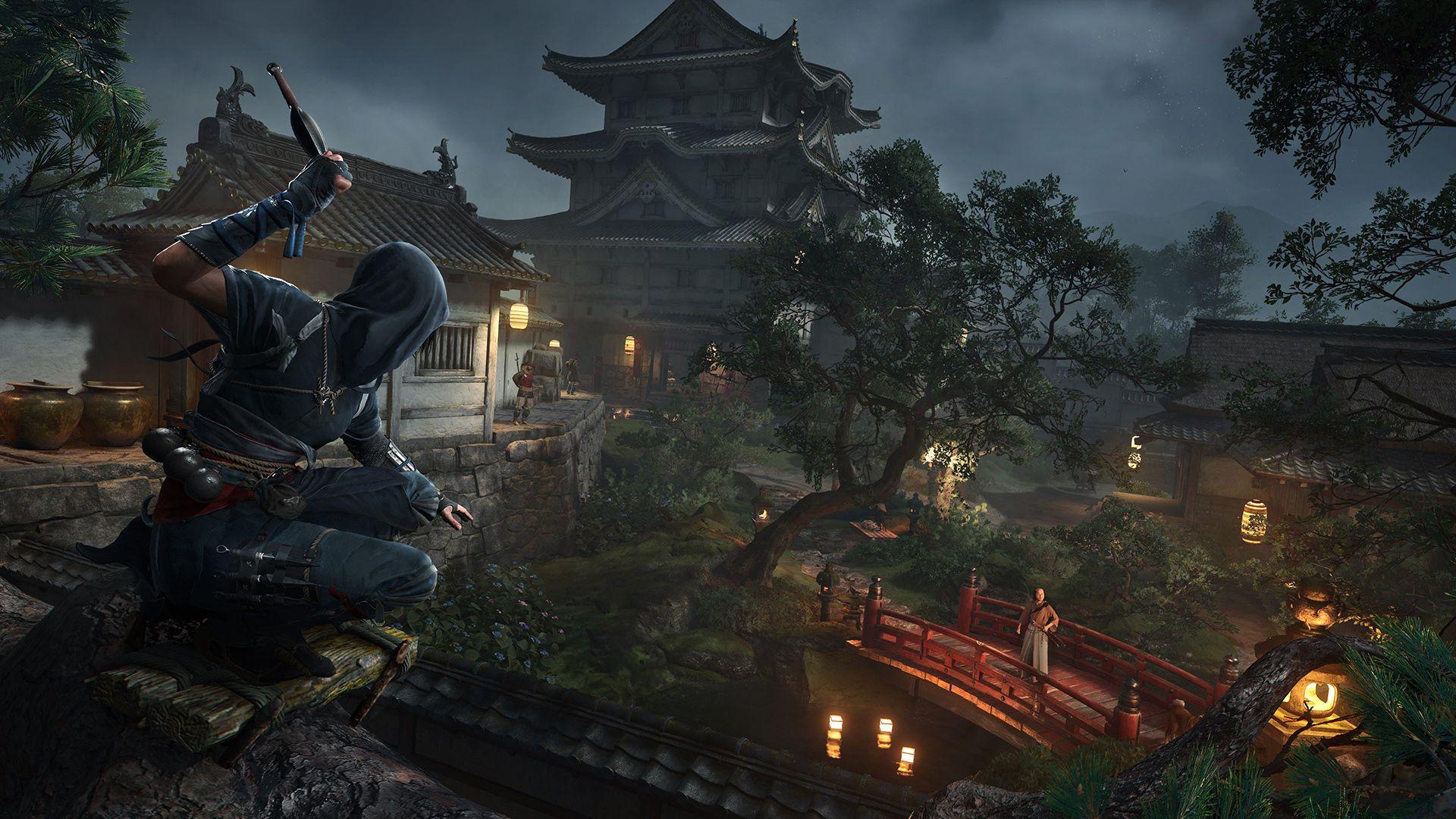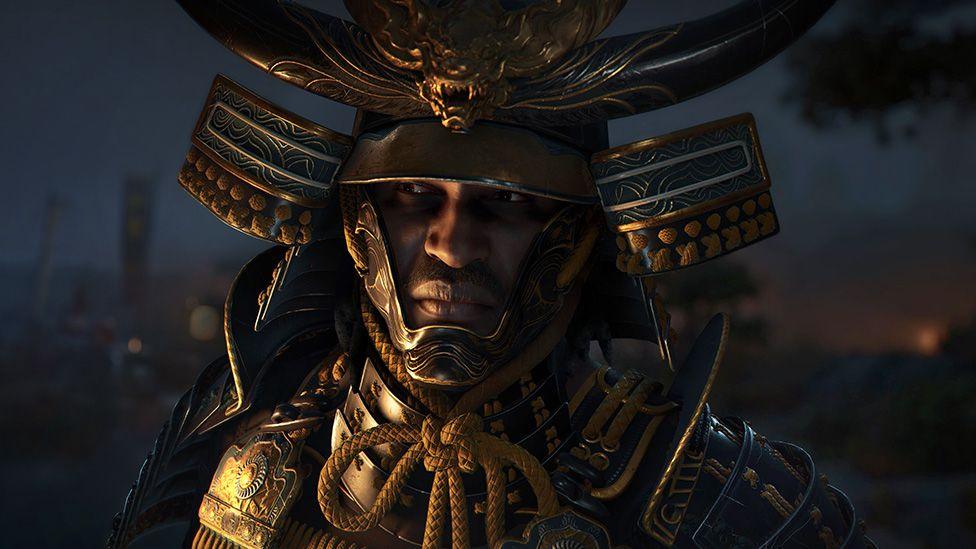Assassin's Creed director: The right time to take series to Japan

Naoe and Yasuke have been introduced as dual protagonists in the game
- Published
In the 17 years since it launched, the Assassin’s Creed series has taken fans all over the world, from Ancient Greece to Victorian London.
But despite many, many requests, it’s never tiptoed into Japan. Until now.
Assassin’s Creed: Shadows, previously codenamed Assassin’s Creed: Red, is a long-awaited pivot for the franchise into the country’s feudal, 16th Century Sengoku Period.
So what took so long?
Game director Charles Benoit tells BBC Newsbeat that, for each new Assassin’s Creed game, the team weighs up potential settings and measures feedback from fans of the series.
“So there's a lot of people involved,” he says.
“We're looking at certain past projects, future projects, and we felt that, this time, it was the perfect moment for Japan.”
Fans got their first glimpse of the game this week via a cinematic trailer that introduced dual protagonists Naoe – a female ninja – and Yasuke – who’s based on a real-life figure often referred to as "the African samurai".

A stealthy approach is encouraged with Naoe's character
Charles says this allows the team to implement two gameplay styles. With Naoe, players are encouraged to take a more stealthy approach, similar to games like Assassin’s Creed: Mirage, while Yasuke’s more combat-focused style is reminiscent of Viking-inspired Assassin’s Creed: Valhalla.
The game’s trailer created a lot of excitement for Shadows – and developer Ubisoft will be hoping for a hit after sales of its earlier 2024 release Prince of Persia: The Lost Crown, were reportedly muted.
Its other big release, the pirate-themed Skull & Bones - which started life as an Assassin’s Creed spin-off - was met with generally low review scores.
Shadow’s trailer also generated backlash from some gamers, who criticised the choice of Yasuke as a main character over a native Japanese protagonist.
Opponents have accused those critics of being racist, and have pointed out that Yasuke is based on a real-life person.
Charles, speaking to Newsbeat before the trailer dropped, says the developers “put a lot of emphasis on authenticity and making sure we depict Japan and the culture right”.
“So when we started the project, we had a historian with us from day one,” he says.
He says the team also consulted weapons experts and travelled to Japan to get a feel for the landscape and locations in the game.

Yasuke’s combat-focused style is reminiscent of Viking-inspired Assassin’s Creed: Valhalla
It’s an approach the Assassin’s Creed series has been leaning into more and more in recent titles.
Last year’s entry Mirage, set in Golden Age Baghdad, included a faithful recreation of the 9th Century Iraqi capital.
It also included an Arabic language option the developers said was based on the dialect spoken in the city at the time.
Mirage was a bit of a change in direction for the series – a more focused game than the sprawling, open-world Valhalla – that felt closer to earlier Assassin’s Creed titles.
But it didn’t escape criticisms often levelled at the franchise about it becoming too samey and sticking to the same format.
Charles insists Shadows will introduce new features to keep the game fresh, including a prone ability allowing the player to crawl towards targets and “dynamic seasons” with changing weather that will affect the moment-to-moment gameplay.
“Heavy rain has a big impact on noise,” he says. “Covering your footsteps, in a way”.
“Perception, also, is impacted by light and shadows.
“You can vanish in the shadows, you can extinguish light. So a lot of different things are impacted by the dynamic world," he says.
New Assassin's Creed takes giant leap on language
- Published5 October 2023
Idris Elba: Actors in video games is 'sign of the times'
- Published26 September 2023
Fury v Usyk: Can Undisputed bring boxing back to video games?
- Published17 May 2024
While the game isn’t out for another six months, after fans have spent 17 years waiting for Assassin’s Creed to land in Japan, will it be hanging around?
“That's a hard question,” says Charles.
“There are so many periods in Japan that are super-interesting. Right now we are in the late Sengoku Era, but the Edo period is super-interesting too.
“So I would like to continue this adventure and see other places in Japan.
“Personally, I would love to continue on this,” he says.
